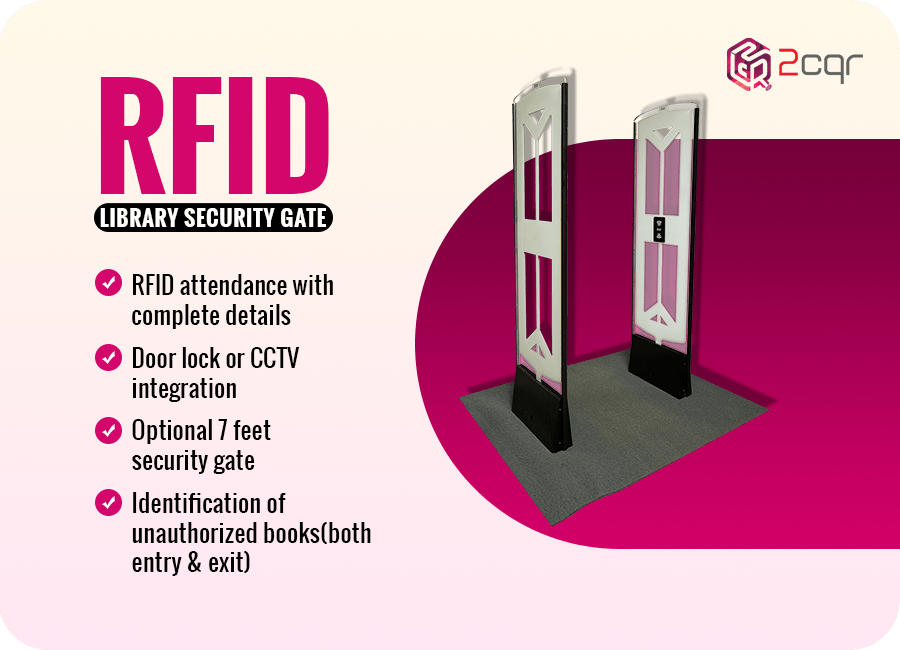
In the dynamic landscape of library management, the adoption of rfid in library has become synonymous with speed, efficiency, and accuracy. However, among the various benefits that RFID technology brings to libraries globally, the looming concern of security often works as a shadow on its widespread implementation. Specifically, the challenge of minimizing invalid tag readings by RFID readers emerges as a critical focal point in ensuring the integrity of library management systems.
The decision to embrace RFID for library operations is not without its apprehensions, and addressing the vulnerability of unauthorized tag readings is paramount for a seamless transition.
In this exploration, we delve into the challenges of this concern, revealing the best strategies to reduce the chances of invalid tag readings to zero. By implementing these effective measures, libraries can fortify their RFID systems, not only maximizing speed and efficiency but also bolstering the security framework essential for safeguarding valuable literary collections.
Avoid Multiple Tag Reading in Bulk
Maximizing the efficiency of library management through multiple tag readings is undoubtedly a game-changer, streamlining inventory audits and speeding up book check-ins and checkouts.
However, looking at the potential chaos that may arise from tag interference becomes crucial in ensuring accuracy and data integrity. Striking the right balance involves setting limits on the quantity of tags being read simultaneously.
This strategic limitation serves as a safeguard against interference, preventing the system from slowing down and, more critically, reducing the risk of reading invalid tags. By embracing this tailored approach, libraries not only optimize their operations but also fortify the reliability of RFID systems, mitigating potential threats to valuable information and data integrity.
Encompassing Strong Authorisation Settings
Elevating the security of RFID systems in libraries to new heights involves a meticulous approach to privacy standards. Sorting and submitting a batch of unique identifiers (UIDs) in advance, exclusively listing valid tags, establishes a robust foundation.
Restricting access to specific individuals through encryption passwords adds an additional layer of defense, ensuring that only authorized personnel can access sensitive data.
The sophistication of RFID system verification, which meticulously cross-checks pre-submitted UIDs against authorized cards, becomes a formidable deterrent against invalid card readings. This multifaceted strategy not only nullifies the chances of unauthorized access but also elevates the overall security framework of RFID in libraries, fostering a controlled and protected environment for valuable information.
Quality Tags
The often-overlooked challenge in the quest to minimise invalid tag readings in libraries lies in the quality of the RFID tags themselves. The importance of these tags is not merely about their initial functionality but extends to the longevity of their service.
Even the smallest damage can have cascading effects, disrupting the seamless operation of the tag and potentially compromising security measures. Whether it’s rendering a tag non-detectable or causing erroneous readings, the standard of subpar tag quality can lead to the identification of invalid tags.
Libraries, therefore, should meticulously consider the quality of RFID tags during the adoption of RFID systems. Regular maintenance checks become paramount in preserving the integrity of the tags, ensuring their sustained functionality, and ensuring the overall security of the library’s RFID system.
Conclusion:
The adoption of RFID technology has revolutionised library management, yet the concern of invalid tag readings necessitates meticulous strategies for security.
However, by Implementing a strategic limitation on multiple tag readings in bulk, elevating security involves strong authorisation settings, maintaining tag quality libraries not only enhance efficiency, reduces invalid tag readings but also fortify the security framework essential for protecting valuable literary collections.


